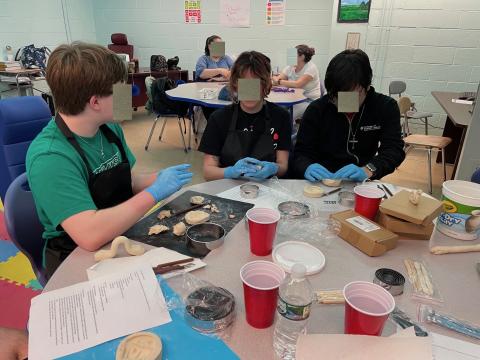Body
Image

Making Mentors
This project pairs autistic college mentors with autistic high school mentees in New York City to create interest-based STEAM projects. In this way, the mentors can engage with the high school students by helping with their projects, learning what they care about and who they are as people, and then give tailored advice about the high school to college transition, support services, academic courses, and extracurricular activities that align with the mentee’s strengths and interests. We use a co-design approach in which the mentors, mentees and high school educators determine how the program is designed. This project is a collaboration among Education Development Center, New York University and City University of New York (CUNY) Staten Island.
Pillar 1: Innovative Use of Technologies in Learning and Teaching
The mentors and mentees often work on technology-based projects. Some examples from this year include a computer-aided design of houses that were 3D printed, a digital anime story, a photo journal of city scenes and a song created with audio software.
Pillar 2: Partnerships for Career and Workforce Preparation.
We are partnering with universities that have autism support programs as well as career support services and high school autism support and college counselors. Mentors are trained by NYU's Wasserman Center for Career Development.
Pillar 3: Strategies for Equity in STEM Education
We are working with autism support programs in New York City public schools and at the universities. All mentors and mentees identify as autistic. We are working with NYC public high schools that serve autistic students with a range of support needs and which serve a diverse student population. Our mentors are able to self identify as neurodivergent, which enables people who are less likely to have a formal diagnosis (women, non-binary, Black, Hispanic, low-income) to be represented in the mentor group.

Discipline(s)
Interdisciplinary
Target Gradespan(s)
High school (9-12)
Target Participant(s)
Participants with disabilities
Project Setting(s)
Informal Education
Category
Developing and Testing Innovations (DTI)